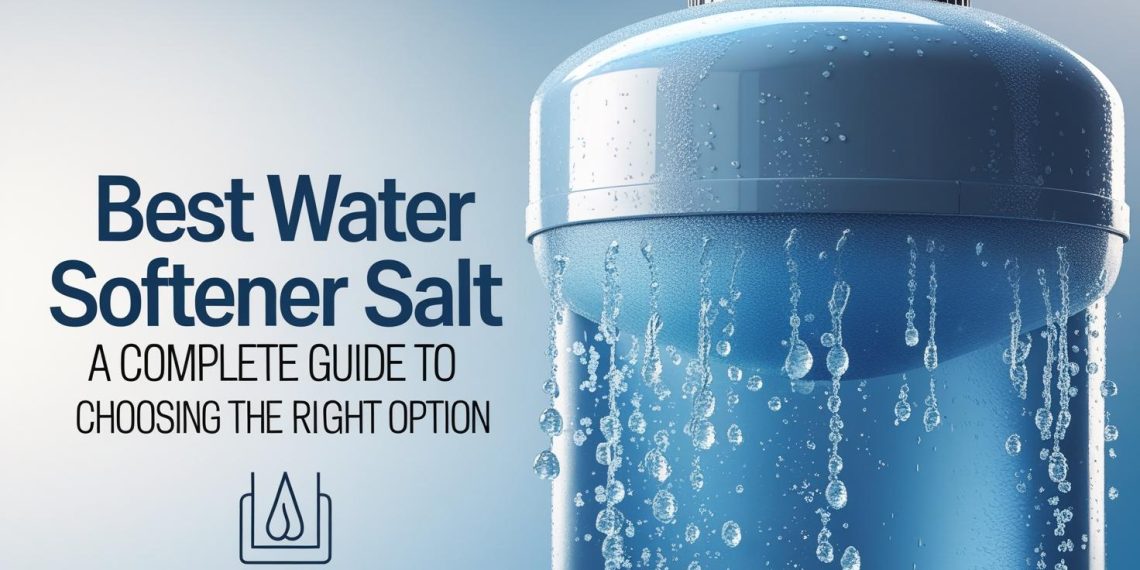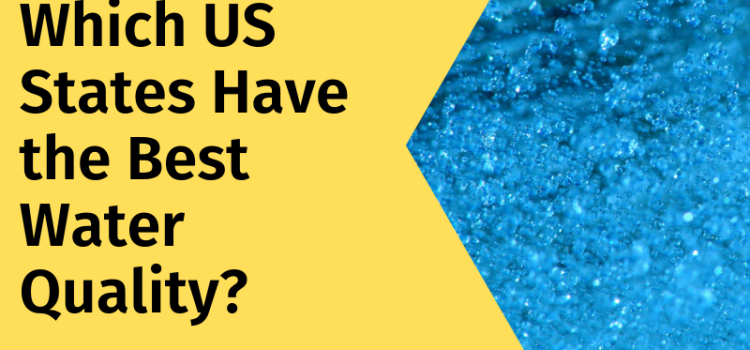Last updated on September 1st, 2025 at 03:52 pm
When it comes to improving your water quality, choosing the best water softener salt is crucial. Hard water can cause scale buildup, damage appliances, and leave your skin feeling dry. A reliable water softener, paired with the right salt, can solve these issues and deliver clean, soft water for everyday use. In this guide, we will explore the best water softener salt, its types, benefits, and factors to consider when making your purchase.
What Is Water Softener Salt?
Water softener salt is specifically designed to regenerate water softener systems by removing calcium and magnesium ions that cause water hardness. When water passes through the softener’s resin beads, these ions are replaced with sodium or potassium, resulting in softer water. Choosing the best water softener salt ensures efficient performance and longevity of your water softening system.
Why Do You Need the Best Water Softener Salt?
Selecting the best water softener salt provides several benefits, such as:
-
Improved appliance lifespan: Prevents scale buildup in appliances like water heaters, dishwashers, and washing machines.
-
Enhanced cleaning efficiency: Soft water allows detergents and soaps to lather better, reducing residue on dishes and clothes.
-
Smoother skin and hair: Eliminates the dryness and dullness caused by hard water.
-
Reduced plumbing issues: Prevents mineral deposits that clog pipes and fixtures.
-
Cost savings: Reduces the need for frequent maintenance and energy consumption.
Types of Water Softener Salt
To find the best water softener salt, you must first understand the different types available. Each type has unique properties, making it suitable for specific water conditions.
1. Rock Salt
Rock salt is one of the most affordable options. It is naturally mined and looks like small, chunky crystals. While it is economical, it contains higher insoluble content, which may lead to residue buildup in the brine tank. For those seeking premium performance, this may not be the best water softener salt.
2. Solar Salt
Solar salt is produced by evaporating seawater and comes in crystal or pellet form. It has high purity and dissolves easily, making it a popular choice for households. It’s often recommended as one of the best water softener salt options for moderate water hardness.
3. Evaporated Salt Pellets
Evaporated salt pellets are highly refined and have a purity of nearly 100% sodium chloride. Their superior quality and minimal insoluble content make them the best water softener salt for long-term efficiency and fewer maintenance needs.
4. Potassium Chloride
Potassium chloride is an alternative to traditional sodium-based salts, especially for those looking to reduce sodium intake in water. It’s an environmentally friendly and health-conscious choice. Although more expensive, many consider it among the best water softener salt solutions.
5. Block Salt
Block salt is large, compacted blocks of salt designed for specific softener systems. It is efficient but requires sufficient water levels in the brine tank to dissolve properly.
How to Choose the Best Water Softener Salt
Choosing the best water softener salt requires evaluating various factors:
1. Water Hardness Level
Test your water hardness using a test kit. For extremely hard water, you may need high-purity evaporated salt pellets or potassium chloride for maximum efficiency.
2. Compatibility with Your Water Softener
Check your water softener manufacturer’s recommendations. Some systems work best with specific types of salt, such as pellets instead of crystals.
3. Salt Purity
High-purity salts dissolve better, reduce residue, and enhance system performance. Evaporated salt pellets are often regarded as the best water softener salt due to their purity.
4. Environmental and Health Concerns
If you’re concerned about sodium levels, potassium chloride is a great alternative, offering the same softening benefits without adding sodium to the water.
5. Price vs. Performance
While rock salt is cheaper, it might require more frequent maintenance. Investing in premium options like evaporated pellets can save time and costs in the long run.
Best Water Softener Salt Brands
While there are many options available in the market, a few brands stand out for quality and performance. When searching for the best water softener salt, consider these top-rated brands:
-
Morton: Known for its high-purity pellets and crystals.
-
Diamond Crystal: Offers solar and evaporated salt options.
-
Cargill Salt: A popular choice with consistent quality.
-
Nature’s Own: Focuses on environmentally friendly potassium chloride salt.
AMPAC USA Carries a Complete Line of Water Softeners and Water Conditions – CLICK HERE
Benefits of Using the Best Water Softener Salt
Switching to the best water softener salt can significantly enhance the performance of your water softener and the overall quality of water in your home.
1. Prevents Scaling and Stains
Soft water reduces mineral deposits on faucets, showerheads, and kitchenware.
2. Saves Energy
Scale buildup in water heaters reduces energy efficiency. The best water softener salt ensures optimal performance and lower energy bills.
3. Improves Laundry Results
Clothes washed in soft water remain bright, soft, and free of detergent residue.
4. Better Tasting Water
High-quality salts ensure cleaner water with improved taste, especially when using potassium chloride.
Common Problems with Water Softener Salt and Solutions
Even with the best water softener salt, issues can arise if not maintained properly.
Salt Bridges
A hard crust may form in the brine tank, preventing the salt from dissolving properly. Breaking the bridge manually and using high-quality pellets can prevent this.
Mushing
Fine salt particles can form a thick sludge at the bottom of the tank. This can be avoided by using evaporated pellets or solar salt crystals, considered the best water softener salt for dissolving smoothly.
Overfilling
Adding too much salt to the brine tank can reduce efficiency. Always follow the manufacturer’s guidelines.
How to Maintain Your Water Softener
Using the best water softener salt is only part of the solution. Regular maintenance ensures your system continues to perform at its best.
-
Check salt levels: Refill when the salt level drops below half the tank.
-
Clean the brine tank: Remove sludge or residue every 6–12 months.
-
Inspect the system: Regularly check for leaks, clogs, or worn-out parts.
-
Use high-purity salts: Prevents buildup and reduces maintenance needs.
FAQs About the Best Water Softener Salt
1. What is the difference between salt pellets and crystals?
Pellets are more refined and dissolve slowly, preventing bridging, while crystals dissolve quickly and work well for standard water softeners.
2. Can I mix different types of salt?
While mixing is possible, it is best to use one type at a time to ensure consistent performance.
3. How often should I refill my water softener with salt?
This depends on water hardness and household usage. On average, refilling every 4–6 weeks is common.
4. Which is better: sodium chloride or potassium chloride?
Potassium chloride is better for health-conscious households, but sodium chloride is more cost-effective.
Final Thoughts on the Best Water Softener Salt
Selecting the best water softener salt is essential for maintaining soft, clean water in your home. Whether you choose evaporated salt pellets, solar crystals, or potassium chloride, the right choice will improve appliance performance, enhance water quality, and save you money in the long run.
For households seeking premium water treatment solutions, AMPAC USA offers advanced water systems designed for efficiency and durability. Explore top-quality water treatment products and expert guidance at ampac1.com.












Частотные преобразователи (ЧП) – это устройства, предназначенные для изменения частоты переменного тока, подаваемого на электродвигатель.
Их применение позволяет плавно регулировать скорость вращения двигателя, что значительно расширяет возможности управления технологическими процессами в различных отраслях промышленности. А вот где использовать [url=https://assa0.myqip.ru/?1-33-0-00000121-000-0-0-1756882273]частотный преобразователь 5 5 кВт[/url]
Перевозка негабаритных и тяжеловесных грузов
За 15 лет работы выполнено более 400.000 перевозок и доставлено свыше 6.000.000 тонн товаров
Участвовали в доставке материалов для строительства керченского моста
Мост является важной транспортной артерией, соединяющей Крым и материковую часть России. Наша команда успешно справилась с задачей доставки крупногабаритных конструкций, необходимых для строительства этого великого сооружения
Принимали участие в строительстве Олимпийского парка в Сочи
А также в строительстве различных школ и других значимых сооружений
Работали на нефтяных и газовых месторождениях
Наша задача заключалась в доставке специализированного оборудования и материало
[url=https://tlk-triga.ru/perevozka_opasnogo_gruza/]перевезти опасный груз[/url]
Работа состоит из трех этапов
1 этап. Заявка
Вы можете оставить заявку на расчёт доставки любым удобным для Вас способом: по телефону, через WhatsApp, Telegram, E-mail. ?Расчет доставки занимает от 15 минут (на перевозку негабаритных грузов от 30 минут)
2 этап. Подписание Договора
Согласование всех условий и требований, при необходимости получение разрешительной документации
3 этап. Транспортировка груза
Транспортировка груза с соблюдением всех требований, фото отчёты с мест погрузки/разгрузки, контроль документа оборота
https://tlk-triga.ru/perevozka_promyshlennogo_oborudovaniya/
межгород грузоперевозки